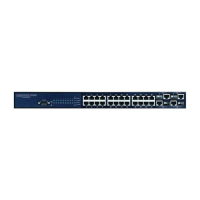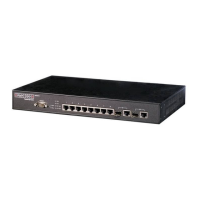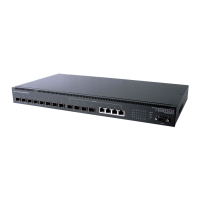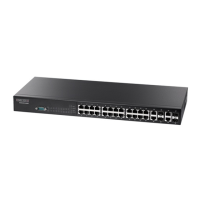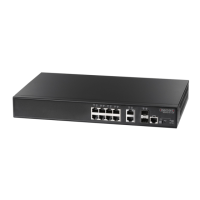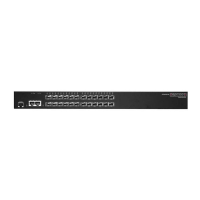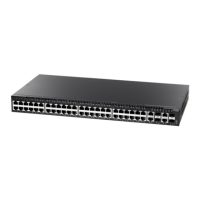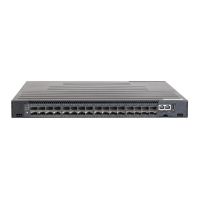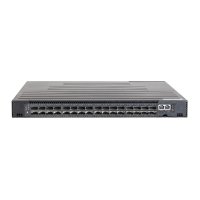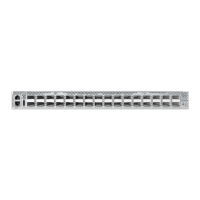C
HAPTER
37
| Class of Service Commands
Priority Commands (Layer 3 and 4)
– 1174 –
PRIORITY COMMANDS (LAYER 3 AND 4)
This section describes commands used to configure Layer 3 and 4 traffic
priority mapping on the switch.
qos map cos-dscp This command maps CoS/CFI values in incoming packets to per-hop
behavior and drop precedence values for priority processing. Use the no
form to restore the default settings.
SYNTAX
qos map cos-dscp phb drop-precedence from cos0 cfi0...cos7 cfi7
no qos map cos-dscp cos0 cfi0...cos7 cfi7
phb - Per-hop behavior, or the priority used for this router hop.
(Range: 0-7)
drop-precedence - Drop precedence used for Random Early
Detection in controlling traffic congestion. (Range: 0 - Green,
3 - Yellow, 1 - Red)
cos - CoS value in ingress packets. (Range: 0-7)
cfi - Canonical Format Indicator. Set to this parameter to “0” to
indicate that the MAC address information carried in the frame is in
canonical format. (Range: 0-1)
Table 147: Priority Commands (Layer 3 and 4)
Command Function Mode
qos map cos-dscp Maps CoS/CFI values in incoming packets to per-hop
behavior and drop precedence values for internal
priority processing
IC
qos map dscp-mutation Maps DSCP values in incoming packets to per-hop
behavior and drop precedence values for internal
priority processing
IC
qos map phb-queue Maps internal per-hop behavior values to hardware
queues
IC
qos map trust-mode Sets QoS mapping to DSCP or CoS IC
show qos map cos-dscp Shows ingress CoS to internal DSCP map PE
show qos map dscp-
mutation
Shows ingress DSCP to internal DSCP map PE
show qos map phb-queue Shows internal per-hop behavior to hardware queue
map
PE
show qos map trust-mode Shows the QoS mapping mode PE
* The default settings used for mapping priority values to internal DSCP values and back to
the hardware queues are designed to optimize priority services for the majority of network
applications. It should not be necessary to modify any of the default settings unless a
queuing problem occurs with a particular application.
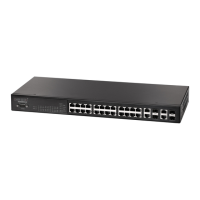
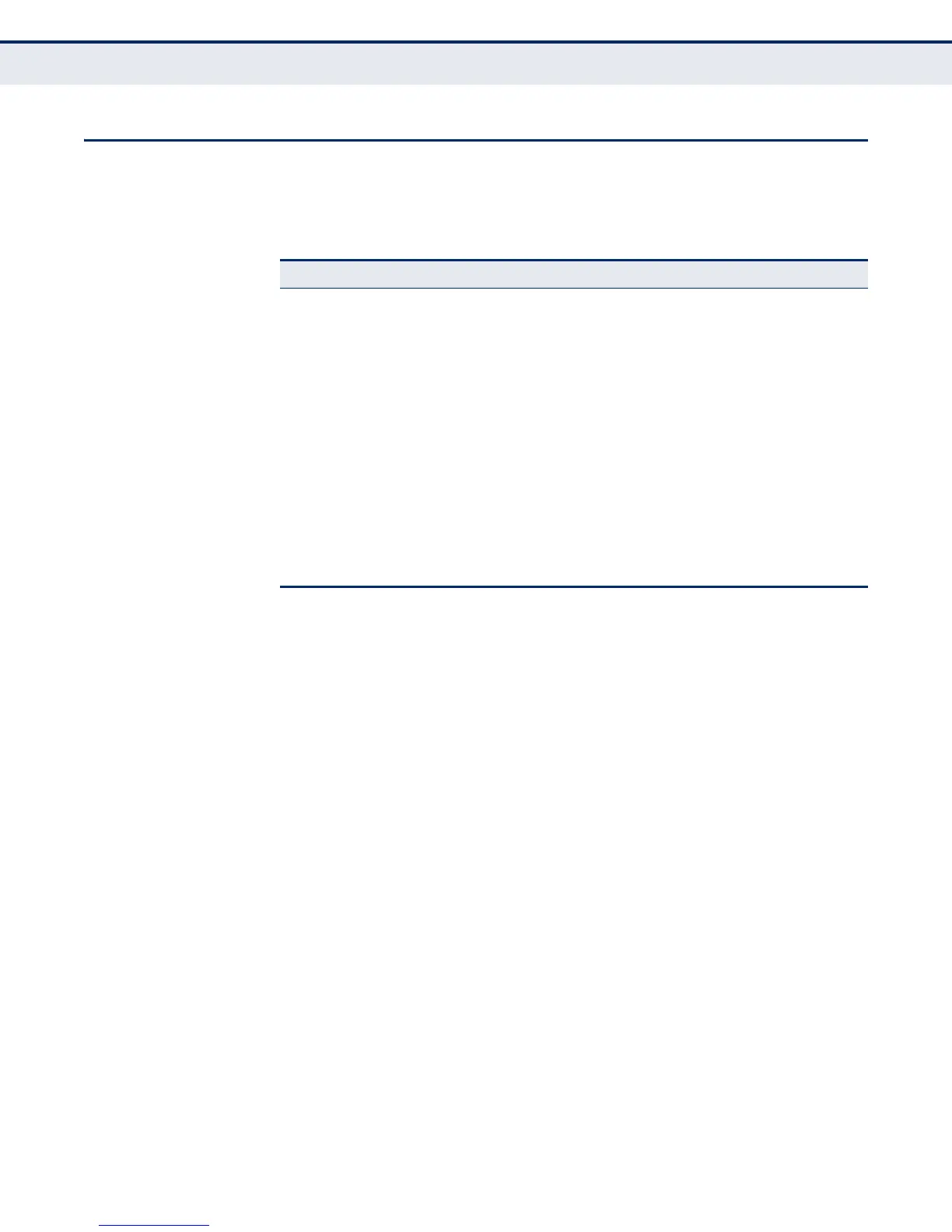